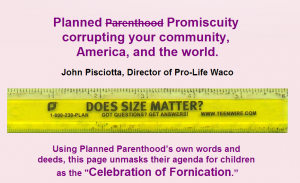I’ve been re-reading David Oshinsky’s book Worse Than Slavery. It’s about the ways the Southern states found, after the Civil War, to continue exploiting black labor after and despite the abolition of slavery; it culminates with an account of Parchman Farm, Mississippi’s nightmarish state prison.
The Washington Post has the whole first chapter. Let’s start with the Mississippi governor in 1865. The state was a ruin.
In the fall of 1865, Governor Benjamin G. Humphreys addressed the “negro problem” before a special session of the Mississippi legislature. A planter by profession and a general during the war, Humphreys had campaigned for office in a “thrice-perforated” army coat shot through with Yankee lead. Like other leading Confederates, he had at first been excluded from participating in the South’s postwar political affairs. But President Andrew Johnson had pardoned the general, and hundreds like him, in remarkably short order. Humphreys received his pardon on October 5, 1865, just three days after winning the governor’s race in a landslide.(24)
His speech about the Negro was a major event, the first of its kind by a Southern governor since the Confederate defeat. “Under the pressure of federal bayonets.” Humphreys began, “. . . the people of Mississippi have abolished the institution of slavery.” That decision was final; there could be no turning back. “The Negro is free, whether we like it or not; we must realize that fact now and forever.”(25)
But freedom had its limits, Humphreys continued. It protected the Negro’s person and property but did not guarantee him political or social equality with whites. Indeed the “purity and progress” of both races required a strict caste system, with blacks accepting their place in the lower order of things. And that place–literally–was the cotton field of the south. Since economic recovery depended on a ready supply of Negro labor, the new system, like the old one, must reward the faithful field hand and punish the loafer. Such was the rule of the plantation, said Humphreys, and the “law of God.”
In the following days, the legislature passed a series of acts known collectively as the Black Codes. Their aim was to control the labor supply, to protect the freedman from his own “vices,” and to ensure the superior position of whites in southern life. “While some of [these acts] may seem rigid and stringent to sickly modern humanitarians,” the legislators declared, “the wicked and improvident, the vagabond and meddler, must be smarted [and] reformed.” Others agreed. The Mississippi Black Codes were copied, sometimes word for word, by legislators in South Carolina, Georgia, Florida, Alabama, Louisiana, and Texas.
And that’s the core of the whole story right there. It’s horribly simple. Mississippi was fertile land for growing cotton but the work is horrible and so is the climate. What to do? Nominate a caste of people who have to do the labor. Before the war it was literal explicit slavery; after the war it was slavery disguised as judicial punishment. How to do that? Make not working a crime for that caste. Make it a crime to quit a job, make it a crime to seek higher pay, make it a crime to move around, make it a crime to offer higher pay.
The Black Codes listed specific crimes for the “free negro” alone: “mischief,” “insulting gestures” “cruel treatment to animals,” and the “vending of spiritous or intoxicating liquors.” Free blacks were also prohibited from keeping firearms and from cohabiting with whites. The penalty for intermarriage, the ultimate taboo, was “confinement in the State penitentiary for life.”
At the heart of these codes were the vagrancy and enticement laws, designed to drive ex-slaves back to their home plantations. The Vagrancy Act provided that “all free negroes and mulattoes over the age of eighteen” must have written proof of a job at the beginning of every year. Those found “with no lawful employment . . . shall be deemed vagrants, and on conviction . . . fined a sum not exceeding . . . fifty dollars.” The Enticement Act made it illegal to lure a worker away from his employer by offering him inducements of any kind. Its purpose, of course, was to restrict the flow (and price) of labor by forcing plantation owners to stop “stealing” each other’s Negroes.
Frighteningly tidy, isn’t it; all exits locked and barred and nailed shut.
Reconstruction got in the way for awhile, but only for awhile.
So this is part of our filthy history, we Americans. Ferguson is like a day at the beach in comparison.
(This is a syndicated post. Read the original at FreeThoughtBlogs.)






